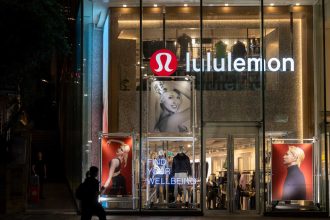As consumers become more eco-conscious, brands are quick to jump on the sustainability bandwagon, capitalizing on the growing interest in environmentally-friendly products. This is certainly true in the bedding industry, which generates more than $22 billion a year according to Statista data.
However, a closer look reveals that not all claims about bedding brands’ sustainability efforts are equal. Some make unsubstantiated assertions about the environmental friendliness of their products, while others continue using manufacturing practices that are harmful both for those helping construct the items as well as the end consumer.
In this landscape, bedding and material innovation brand ettitude (meaning eco-attitude) is one company placing material innovation at the forefront of its mission: a commitment to revolutionize the textile industry.
Led by co-founders Phoebe Yu and Kat Dey, ettitude’s flagship product, CleanBamboo®, is a strong example of the founders’ dedication to sustainable practices. Unlike conventional bamboo fabrics that use caustic soda in production, ettitude pioneered a new method for making bamboo fabrics without the use of toxic chemicals.
The patented CleanBamboo® materials are non-toxic and certified by the OEKO-Tex standard, ensuring the highest safety standards for consumers. What’s more: the use of certified organic bamboo and food-grade processing puts their fabrics in a category that is dermatologist-recommended as safe for sensitive skin.
That said, not all bamboo fabrics are the same. Founder Phoebe Yu raises a cautionary flag against brands marketing bamboo viscose products as sustainable without proper certifications or verified environmental savings.
She explained that while some brands may use bamboo as input, the viscose method they employ involves harmful chemicals like carbon disulfide, caustic soda, and sulfuric acid. ettitude’s method, using the lyocell process, employs food-grade solvents and a closed-loop system, saving energy and water while avoiding harmful chemicals.
The brand’s commitment to sustainability doesn’t stop when it comes to materials, either. Ettitude holds a B Corp certification in recognition of its ethical and sustainable business practices and works with the scientific agency BCOME to rigorously calculate and disclose its carbon dioxide, water, chemical, and fossil fuel savings compared to conventional materials. This information is shared with consumers in an annual impact report that lives on the company website.
So what does this sustainability impact look like by the numbers?
According to the latest edition of the report, ettiude saved more than three million liters of water and more than 70,000 acres of land through the use of sustainable materials and eliminated more than 1,000 tons of carbon dioxide emissions via carbon offset programs.
Beyond the production aspect of the business, the brand also avoids the use of virgin plastic, opting for plant-based buttons and metal zippers. Fabric off-cuts find a purpose in packaging, and returns are given a second life through Re:New, ettitude’s secondhand store.
“We are at a point in time when textiles are especially under the microscope,” said Elissa Decker, Director of Global Textile Development & Procurement at Moss. “Consumers are becoming more mindful of impact and product lifecycles, and brands are in a dynamic position to make a difference by making implementing better solutions within their textile supply chains.”
Decker went on to say that as these forces converge, the overall impact is a net positive: It’s a win for the consumer, a win for the brand, and a win for the planet.
Looking ahead, ettitude has ambitious plans for education and advocacy around textile sustainability and continued fabric innovation, as well as plans to collaborate with luxury apparel brands on their next-gen materials and expanded retail partnerships.
In a market flooded with greenwashing tactics, both consumers and those working within the textile industry benefit from brands like ettitude that stand as genuine advocates for sustainability and set a high standard for transparency, innovation, and environmental responsibility.
Read the full article here





